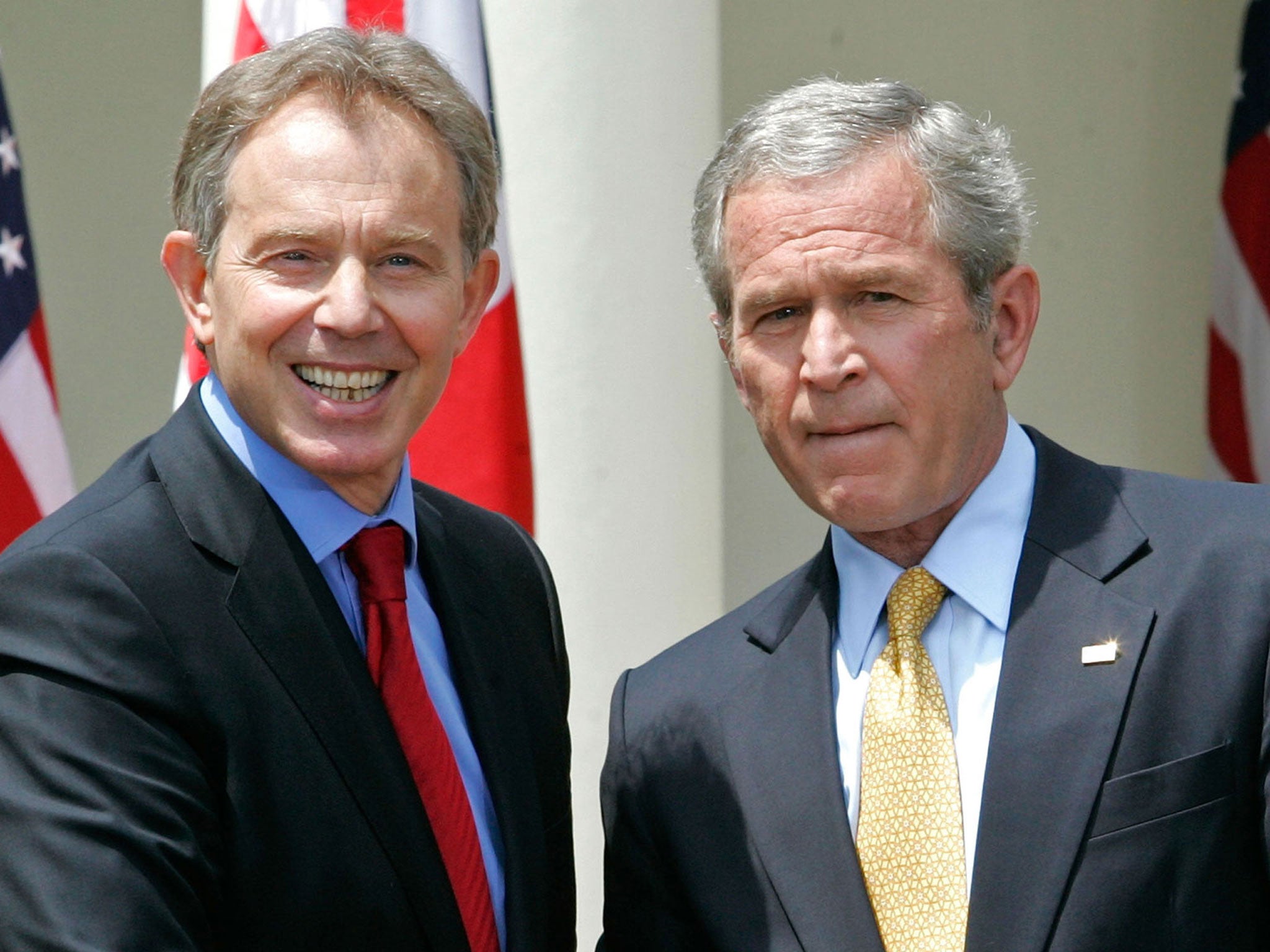Chilcot Inquiry: John Major urges Blair to get Bush conversations published
The former Prime Minister said it was still possible to release the records

Your support helps us to tell the story
From reproductive rights to climate change to Big Tech, The Independent is on the ground when the story is developing. Whether it's investigating the financials of Elon Musk's pro-Trump PAC or producing our latest documentary, 'The A Word', which shines a light on the American women fighting for reproductive rights, we know how important it is to parse out the facts from the messaging.
At such a critical moment in US history, we need reporters on the ground. Your donation allows us to keep sending journalists to speak to both sides of the story.
The Independent is trusted by Americans across the entire political spectrum. And unlike many other quality news outlets, we choose not to lock Americans out of our reporting and analysis with paywalls. We believe quality journalism should be available to everyone, paid for by those who can afford it.
Your support makes all the difference.Sir John Major has urged Tony Blair to intervene so the full records of conversations he had with George Bush leading up to the Iraq War can be released.
The Conservative former Prime Minister warned that withholding the papers would make suspicions “fester and worsen”.
Discussions over which extracts from more than 130 conversations between Mr Blair and the then US President can be included in the long-awaited Chilcot Inquiry report have delayed its publication for a year.
In the current compromise, the inquiry will be able to publish some details of what the Prime Minister said to Mr Bush but not what the President said to him.
Speaking on Radio 4’s Today programme, Sir John said it was a “pity” for papers to be withheld.
He added: “Firstly, they will leave suspicions unresolved and those suspicions will fester and maybe worsen.
“Secondly, in many ways I think withholding them is going to be very embarrassing for Tony Blair, not least of course because he brought the Freedom of Information Act into law when he was in government.”
Sir John said there were “strict rules” that prevented the current Government from intervening and insisted it was down to Labour or Mr Blair to approach the Cabinet Office, which handled the negotiations.
“Mr Blair could, the previous Labour government could, and maybe in their own interests they should think about that because otherwise, as I say, this will fester and I don't think anybody wishes to see that,” he added.
The details of over 200 Cabinet-level discussions on the Iraq war will also be made available for publication or reference by the inquiry.
Campaigners have reacted angrily to the decision to limit the release and branded the move a whitewash.
Rose Gentle, whose 19-year-old son Gordon was killed in Iraq in June 2004, said she was “sickened” by the decision to publish only selected sections and believed Mr Blair would “walk away from it with a smile on his face”.
“How will the families get to know the truth?” she asked. “We are just shoved aside. We just feel 'What's the point?'”
Mrs Gentle said the limited disclosure would mean the families were "still going to be wondering" about what had actually gone on between Mr Blair and Mr Bush before the invasion.
Andrew Mackinlay, a former Labour MP who was a member of the Foreign Affairs Select Committee, said redacting records would be a “bad day for democracy and justice”.
A Cabinet Office spokesman said that Government was "pleased" an had been reached.
"Resolving this issue has taken longer than originally hoped but these are sensitive issues," he added.
“The Government and the inquiry are working to ensure the inquiry's report is published as soon as possible and the Government is doing everything it can to facilitate that.”
The Chilcot Inquiry was announced in 2009 to examine the period leading up to the 2003 invasion of Iraq, the conflict and its aftermath.
Additional reporting by PA
Join our commenting forum
Join thought-provoking conversations, follow other Independent readers and see their replies
Comments